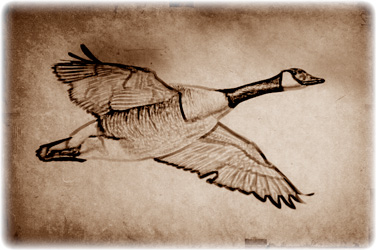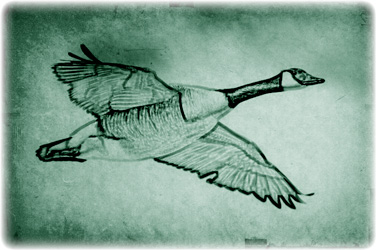Are you looking for a poem analysis of Wild Geese by Mary Oliver? Great! We have the best Wild Geese analysis you are going to find anywhere!
Wild Geese first appeared in Mary Olivers’ collection of poems Dream Works published in 1986. It was also the title of a 2004 published volume of Mary Olivers’ poems.
The poem suggests we unburden ourselves of society’s demands so that we can regain our childhood wonder of nature. Our Wild Geese analysis will lead you line by line through the poem.

Wild Geese Analysis: Line by Line
You do not have to be good.
You do not have to walk on your knees
for a hundred miles through the desert repenting.
Any Wild Geese analysis should ask the following questions: What does it mean you don’t have to be good? Should we all want to be good? Why would someone tell you that you don’t need to be good?
Well, often we are told in life that if we are good, we will get a reward. If we are good, our parents will buy us some candy. If we are good, God will let us into heaven. If we play by society’s rules, society will protect us and reward us.
We often see the world in moral terms. We tend to feel bad if we get something for nothing. There is a sense that we only deserve a reward if we’ve been good.
But here Mary Oliver is suggesting in her poem Wild Geese that for some rewards you don’t need to be good. When it comes to nature, nature works differently. It rewards differently. You don’t have to get on your knees and pray to God. These rewards come to us regardless of whether we’ve been good or not.
On a deeper level, think about how people often feel bad about something. They feel bad about their sexuality or their selfishness or their personal failures. Mary Oliver could be saying here, don’t worry about all that, let go of the guilt. There is a reward out there for you via nature that comes to everyone equally.
love what it loves.
Any analysis of Wild Geese needs to ask this question, why should someone have to tell you to love what you already love? Notice Mary Oliver uses the word “let.” She is saying some people don’t let themselves love freely.
Why? Why would anyone not let themselves love freely? Maybe because society teaches us many rules, and in the context of those rules they no longer feel they can love freely. Think of Romeo and Juliet, look how society drove them apart.
So Mary Oliver is suggesting we need to go beyond these rules, and we need to try and get in touch with our real feelings. We have to go beyond the inhibitions that society has given us and get back to a more childlike innocence.
Often society is all about reforming nature, destroying nature, and controlling nature. We live almost entirely indoors. We work and go to school in air conditioned offices. Our lives have become sterile. Nature is different. It’s chaotic, unpredictable, dangerous, and even dirty. But beyond all this, it’s immensely beautiful.
Tell me about despair, yours, and I will tell you mine.
Meanwhile, the world goes on.
A poem analysis of Wild Geese by Mary Oliver should consider the following: At school, we might be worried about our status or what clique we belong to. At work, we might be worried about our salary and how many bills we pay. Yet, how real are these threats? It’s not as if our life we’re really in danger, is it?
When we look outside, away from our own tiny subjective world, we see that we’re actually part of something much bigger and grander. And when we see this, often our own problems, which felt so utterly important a little while ago, slip away.
Meanwhile the sun and the clear pebbles of the rain
are moving across the landscapes,
over the prairies and the deep trees,
the mountains and the rivers.
In other words, the poem, Wild Geese suggests nature is beautiful and breathtaking to behold. Nature isn’t about forethought, endless thinking, brooding, and stress. Nature just is what it is. In nature things just happen. Everything falls into place. Nature happens for the sheer joy of it—not because it’s been told it must do this or that. Not because it’s been told it should do this or that.
So Mary Oliver is asking us to take a look at this. To let go of all our feelings about society which produce guilt or stress, and to remember what the bigger picture is. We need to remember that as we, too, are a part of nature, our social world is not all there is to life.
Meanwhile the wild geese, high in the clean blue air,
are heading home again.
Any Wild Geese analysis would have to note what a wonderful image this is, and a wonderful metaphor, as well. Is there anything more beautiful than flight? Is there anything that conjures the image of freedom more than flight? This is the primary metaphor in Mary Oliver’s poem Wild Geese.
In talking about “home” there’s a sense that our innate feelings are always with us. That is, at times we lose touch with our spontaneous feeling, but those feelings are still there. They’ve just become latent and hard to get at. Going home is going back to that stage in our life when we still looked upon the world with childish wonder. It’s being a child again, but in a bigger sense, seeing the entire world of nature as our real home.
Whoever you are, no matter how lonely,
the world offers itself to your imagination,
calls to you like the wild geese, harsh and exciting –
over and over announcing your place
in the family of things.
We think that the last four lines of Wild Geese sum up Mary Oliver’s poem better than any analysis ever could.
Whoever you are, even if you are lonely, feeling lost, look out into the larger world, that of nature. Recapture that imagination of childhood, when desires felt free and came to us without fear. If we can get back to that place, then we can get back to seeing our place in the whole family of nature.

Wild Geese Analysis: Summary and Last words
We think Mary Oliver’s poem Wild Geese is stunning and wonderful. It delivers a timely message.
We hope you’ve enjoyed our analysis of Wild Geese. Don’t forget to subscribe to Shadow of Iris. Not only do we deliver poem analyses, but poems and short stories as well. Our newsletter is free!